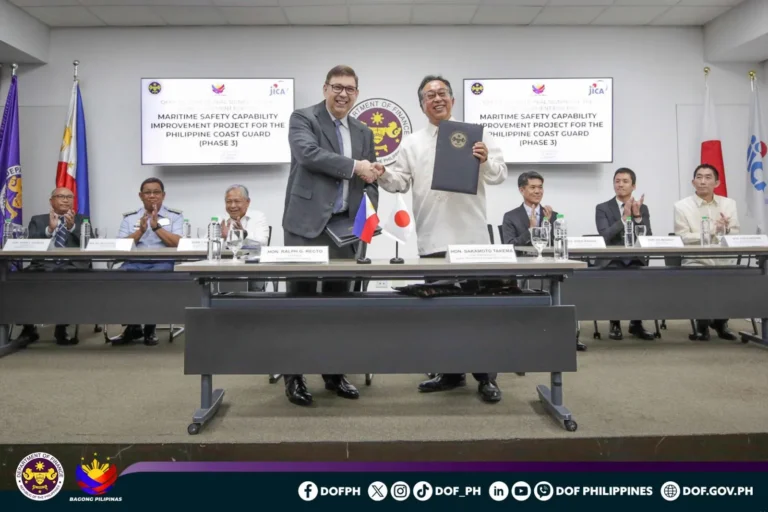Finance Secretary Benjamin E. Diokno has expressed full confidence that the Philippine economy remains firmly on the path to recovery and progress, as evidenced by its solid economic performance in the first three quarters of the year, the strong gross domestic product (GDP) forecasts for the country by international financial institutions, and the Marcos, Jr. administration’s comprehensive policy thrusts to accelerate economic development.
“[W]ith a brightening outlook on the horizon and a strong array of revenue-enhancing reforms, the Philippine economy remains firmly on the path to recovery and progress,” Secretary Diokno highlighted during the Pilipinas Conference 2023 on November 22, 2023 at The Peninsula Manila.
Hosted by the Stratbase ADR Institute, the Pilipinas Conference is an annual event that aims to stimulate ideas and generate discussions on society’s most pressing issues.
With the theme, “The Path Towards Economic Security: Turning Global Risks into Opportunities”, this year’s conference gathered key leaders from the government, business sector, and the diplomatic community to strengthen multi-sectoral collaboration to address the social, political, and economic challenges that shape the Philippines and Indo-Pacific.
Secretary Diokno was invited alongside Department of Transportation (DOTr) Secretary Jaime J. Bautista, Department of Trade and Industry (DTI) Secretary Alfredo E. Pascual, and National Economic and Development Authority (NEDA) Undersecretary for Investment Programming Group (IPG) Joseph J. Capuno to participate in the first panel discussion titled “Economic Outlook and Strategies for 2024”.
During his speech, Secretary Diokno highlighted that the Philippine economy posted the strongest third-quarter growth of 5.9 percent in the region.
This brought the country’s GDP expansion for the first three quarters of 2023 to 5.5 percent – faster than China, Indonesia, Vietnam, Malaysia, and Singapore.
The strong growth performance was supported by higher revenue collections, easing inflation, and continuous improvements in the jobs market.
“Despite external risks and domestic challenges, the Philippines remains to be one of the brightest spots in the region,” Secretary Diokno said.
This is backed up by strong growth forecasts from foreign financial institutions, such as the World Bank (WB) which expects the Philippines to outpace its East Asia and Pacific peers at 5.6 percent in 2023.
The ASEAN+3 Macroeconomic Research Office (AMRO), on the other hand, projects the Philippines to post the highest growth in Southeast Asia both in 2023 and 2024 at 5.9 and 6.5 percent, respectively.
“With a promising outlook on the horizon, we are confident that we will achieve the lower end of our growth target of 6.0 to 7.0 percent for this year, and accelerate at 6.5 to 8.0 percent from 2024 to 2028,” said the Finance Chief.
The Marcos, Jr. administration aims to pursue macroeconomic stability and fiscal sustainability by implementing the Philippines’ first-ever Medium-Term Fiscal Framework (MTFF).
Among the key reforms being pursued by the Department of Finance (DOF), as identified under the MTFF to accelerate economic development, are the Real Property Valuation and Assessment Reform Bill, the Passive Income and Financial Intermediaries Taxation Bill, and the value-added tax (VAT) on digital services.
On top of these, the DOF is also pushing for the passage of tax measures on sweetened beverages and junk food, as well as an excise tax on single-use plastics (SUPs), motor vehicle road users tax, and the rationalization of the country’s mining fiscal regime.
“Together, these measures aim to improve tax administration, enhance the fairness and efficiency of our tax system, and promote environmental sustainability to address climate change,” Secretary Diokno said.





